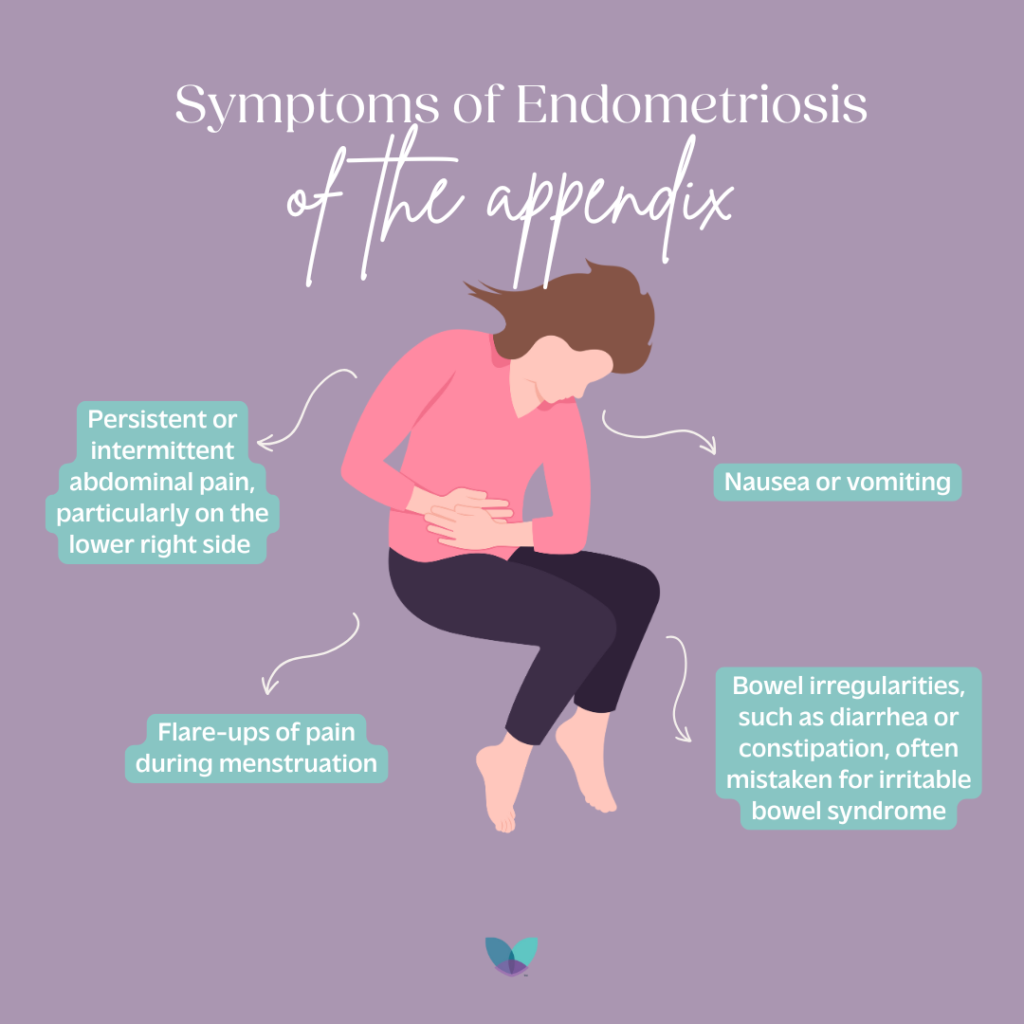When people think of endometriosis, they often associate it with the reproductive organs—primarily the ovaries, uterus, and fallopian tubes. However, endometriosis can extend far beyond this space, affecting various parts of the body, including the appendix. This condition, known as endometriosis of the appendix, underscores the importance of comprehensive treatment strategies, particularly excision surgery performed by a skilled surgeon.

How Does Endometriosis Affect the Appendix?
Endometriosis occurs when tissue similar to the lining of the uterus grows in locations outside the uterus. While it’s most commonly found in the pelvic region, endometriosis can also appear in the gastrointestinal tract, as well as other areas of the body. The appendix, a small, tube-like structure attached to the large intestine, is one such area where endometriosis can develop. Symptoms of endometriosis of the appendix may mimic other gastrointestinal issues, making diagnosis challenging.
These symptoms might include:
- Persistent or intermittent abdominal pain, particularly on the lower right side
- Nausea or vomiting
- Bowel irregularities, such as diarrhea or constipation, often mistaken for irritable bowel syndrome (IBS)
- Flare-ups of pain during menstruation
In some cases, endometriosis of the appendix may remain asymptomatic, only being discovered during surgery for another condition or during excision surgery for pain related to endometriosis in other locations.

The Importance of Excision Surgery
Proper diagnosis and treatment of endometriosis, especially in less common areas like the appendix, require a meticulous approach. Excision surgery, where all visible and suspected endometriosis is carefully removed, is considered the gold standard for treating this complex disease.
A skilled endometriosis excision surgeon will:
- Perform a Thorough Evaluation: During surgery, they will examine the entire pelvic cavity and beyond to identify all areas affected by endometriosis.
- Remove All Endometriosis: This includes excising lesions on the appendix, ensuring complete removal while preserving as much healthy tissue as possible. Depending on the discussions you have had with your surgeon, you may have already consented to the removal of the appendix, especially if your surgeon sees lesions or suspects issues to occur in the future.
- Collaborate with Specialists: If endometriosis extends into other organs, such as the bowel or bladder, a multidisciplinary team may be involved to provide comprehensive care. At PRM, our surgeons are skilled in removing endometriosis from the bowel, bladder, diaphragm, and more.
Why Comprehensive Care Matters
Endometriosis in atypical locations like the appendix highlights the need for a surgeon who doesn’t just focus on the reproductive organs but looks at the body holistically. Leaving untreated endometriosis, whether on the appendix or elsewhere, can lead to persistent symptoms, complications, and a diminished quality of life – and unnecessary surgeries down the road.
Moreover, the ability to identify and address these less common sites of endometriosis reduces the likelihood of needing additional surgeries and contributes to better long-term outcomes. At PRM, our goal for endometriosis patients is to reduce the overall total number of surgeries that a patient has to undergo in a lifetime, and this starts with proper excision and care.
Seeking the Right Specialist
If you suspect you have endometriosis, have been diagnosed, or have had excision surgery but are still experiencing symptoms, we highly encourage you to schedule a consultation with one of our endometriosis excision surgeons. Our experts will provide a tailored approach, ensuring that all areas of concern, including the appendix, are thoroughly evaluated and treated.
At PRM Centers of Excellence nationwide, our team of both pelvic pain and endometriosis excision specialists are committed to helping patients understand their condition and manage their symptoms to achieve pain-free living.
By raising awareness about endometriosis of the appendix and the importance of excision surgery, we can empower patients to advocate for the specialized care they need and deserve.
